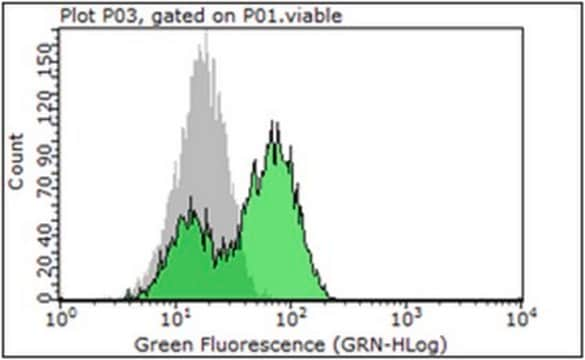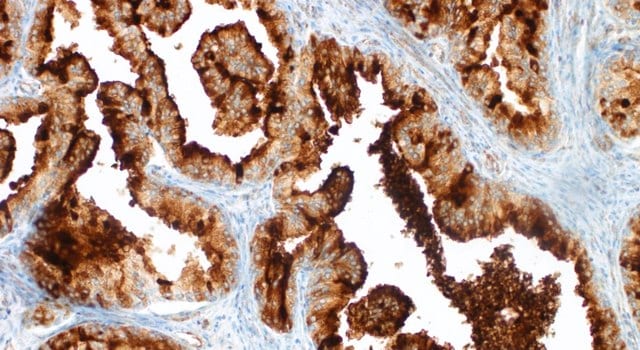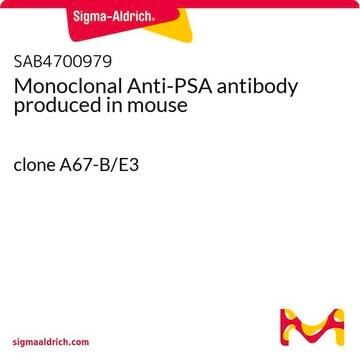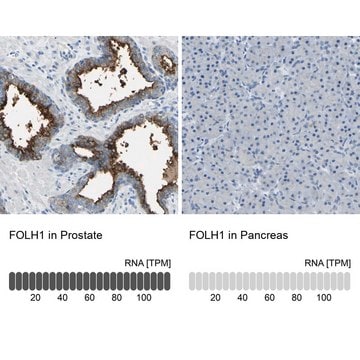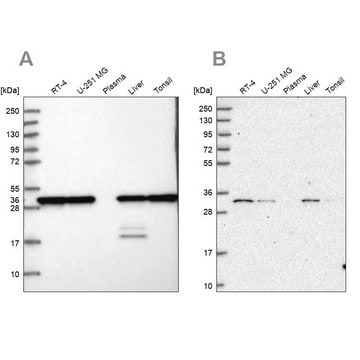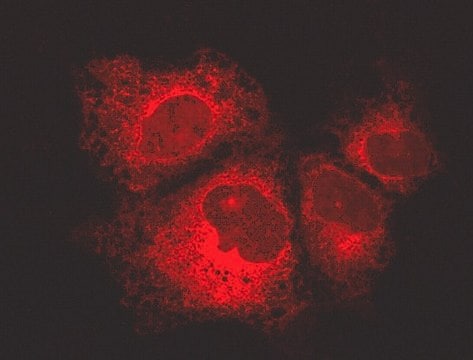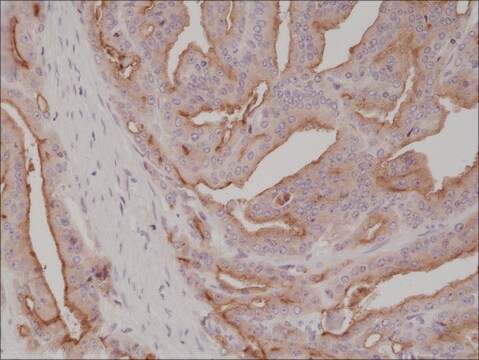SAB4200257
Anti-PSMA antibody, Mouse monoclonal
clone 107-1A4, purified from hybridoma cell culture
Synonym(s):
PSMA Antibody - Monoclonal Anti-PSMA antibody produced in mouse, Psma Antibody, Monoclonal Anti-FOLATE HYDROLASE 1, Monoclonal Anti-FOLH1, Monoclonal Anti-GCP2, Monoclonal Anti-GLUTAMATE CARBOXYPEPTIDASE II, Monoclonal Anti-N-ACETYLATED ALPHA-LINKED ACIDIC DIPEPTIDASE 1, Monoclonal Anti-NAALAD, Monoclonal Anti-PROSTATE-SPECIFIC MEMBRANE ANTIGEN, Monoclonal Anti-PSM
About This Item
Recommended Products
biological source
mouse
Quality Level
conjugate
unconjugated
antibody form
purified immunoglobulin
antibody product type
primary antibodies
clone
107-1A4, monoclonal
form
buffered aqueous solution
species reactivity
human
packaging
antibody small pack of 25 μL
concentration
~1.0 mg/mL
technique(s)
flow cytometry: suitable
immunocytochemistry: suitable
immunoprecipitation (IP): suitable
indirect ELISA: suitable
indirect immunofluorescence: 5-10 μg/mL using methanol/acetone fixed LNCaP cells.
isotype
IgG1
shipped in
dry ice
storage temp.
−20°C
target post-translational modification
unmodified
Gene Information
human ... FOLH1(2346)
General description
Immunogen
Application
- enzyme linked immuno sorbent assay (ELISA)
- immunocytochemistry
- immunoprecipitation
- flow cytometry
Biochem/physiol Actions
Physical form
Disclaimer
Not finding the right product?
Try our Product Selector Tool.
Storage Class Code
12 - Non Combustible Liquids
WGK
WGK 1
Flash Point(F)
Not applicable
Flash Point(C)
Not applicable
Certificates of Analysis (COA)
Search for Certificates of Analysis (COA) by entering the products Lot/Batch Number. Lot and Batch Numbers can be found on a product’s label following the words ‘Lot’ or ‘Batch’.
Already Own This Product?
Find documentation for the products that you have recently purchased in the Document Library.
Our team of scientists has experience in all areas of research including Life Science, Material Science, Chemical Synthesis, Chromatography, Analytical and many others.
Contact Technical Service